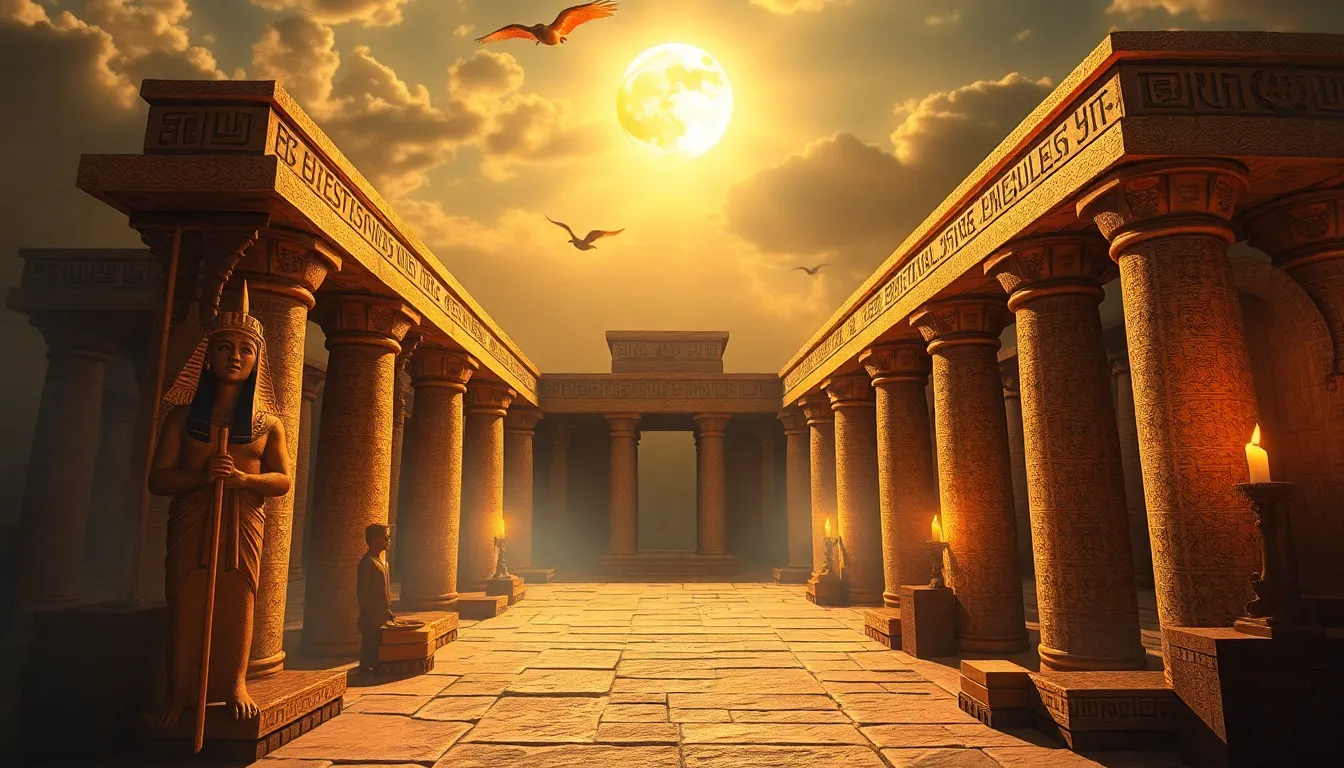The Egyptian Festival Calendar: A Guide to Key Celebrations
I. Introduction
Egypt boasts a rich cultural heritage that has evolved over millennia, shaped by its ancient civilizations, diverse peoples, and profound religious beliefs. Festivals play a crucial role in Egyptian society, serving as a means of celebration, community bonding, and cultural expression.
The purpose of this article is to provide an insightful guide to the Egyptian festival calendar, highlighting key celebrations, their historical contexts, and the vibrant cultural elements that define them.
II. Historical Context of Egyptian Festivals
The origins of festivals in Egypt can be traced back to ancient times, where they were deeply intertwined with religious practices and agricultural cycles. The Egyptians honored their gods through various ceremonies and rituals, often linked to the annual flooding of the Nile, which was vital for their crops.
Religion and mythology heavily influenced these celebrations. Many festivals were dedicated to specific deities, such as the Festival of Opet, which celebrated the divine union of Amun and his wife Mut. Over the centuries, these festivals evolved, adapting to changes in society, governance, and religious practices.
III. Major Festivals in the Egyptian Calendar
Among the numerous festivals celebrated in Egypt, several stand out due to their significance and widespread participation:
A. The Feast of the Sacrifice (Eid al-Adha)
Eid al-Adha, also known as the Feast of Sacrifice, commemorates the willingness of Ibrahim (Abraham) to sacrifice his son in obedience to God. This festival is celebrated by:
- Performing prayers at mosques or open fields.
- Slaughtering livestock, such as sheep or goats, with the meat shared among family, friends, and the needy.
- Engaging in communal meals and festivities.
B. The Ramadan Festival (Eid al-Fitr)
Eid al-Fitr marks the end of Ramadan, the holy month of fasting. It is a joyous occasion characterized by:
- Special prayers held in mosques.
- Giving of Zakat al-Fitr, a form of charity to help those in need.
- Family gatherings, feasting, and exchanging gifts.
C. Sham el-Nessim: The Spring Festival
Sham el-Nessim is a unique Egyptian festival that celebrates the arrival of spring. It is not religious in nature and is instead a cultural event that includes:
- Picnics in parks and gardens, where families celebrate outdoors.
- Traditional foods such as salted fish (feseekh) and colored eggs.
- Activities such as kite flying and outdoor games.
IV. Regional Variations in Celebrations
Egypt’s diverse regions contribute to a rich tapestry of festival celebrations, each with its own local customs and traditions. Some notable regional variations include:
A. Differences in Celebrations Across Egypt
In Upper Egypt, festivals may include unique traditional music and dance forms, while coastal cities may celebrate with seafood dishes during major holidays.
B. Local Traditions and Customs
Each region has its own specific practices, such as:
- The Alexandria International Song Festival, celebrating local music.
- Folkloric performances in Aswan that showcase Nubian culture.
C. Notable Regional Festivals and Their Significance
Some festivals are celebrated primarily in certain cities, adding to the regional flavor of Egyptian culture:
- The Abu Simbel Sun Festival, marking the alignment of the sun with the temple.
- The Cairo International Film Festival, highlighting Egypt’s cinematic achievements.
V. The Role of Festivals in Modern Egyptian Society
In contemporary Egypt, festivals continue to play a vital role in fostering community participation and social cohesion. They bring people together, reinforcing bonds among families, friends, and neighbors.
The economic impact of festivals is significant, as they stimulate local businesses through tourism, food sales, and crafts. Markets and bazaars thrive during festival seasons, providing opportunities for artisans and vendors.
Moreover, festivals serve as a means of preserving cultural identity. They provide a platform for showcasing traditional music, dance, and crafts, ensuring that these cultural expressions are passed down through generations.
VI. Unique Cultural Elements of Egyptian Festivals
Egyptian festivals are characterized by various cultural elements that enhance their vibrancy:
A. Traditional Music and Dance
Music and dance are integral to Egyptian festivals, with performances often featuring traditional instruments like the oud and the tabla. Folk dances like the Tanoura and the Bedouin dance are commonly performed during celebrations.
B. Food and Culinary Traditions
Food is a central aspect of Egyptian festivals, with traditional dishes varying by occasion. Popular festival foods include:
- Kushari: A mix of rice, pasta, and lentils.
- Basbousa: A sweet semolina cake.
- Mahshi: Vegetables stuffed with rice and spices.
C. Artistic Expressions and Crafts
Festivals often showcase local artistry, including handmade crafts, pottery, and textiles. These crafts reflect the cultural heritage of different regions and are an essential part of the festival experience.
VII. Planning and Attending Egyptian Festivals
For those interested in experiencing Egyptian festivals, here are some tips for planning your visit:
A. Best Times to Visit for Festival Experiences
The best times to visit Egypt for festivals are during major celebrations like Eid al-Adha, Eid al-Fitr, and Sham el-Nessim, which typically occur in the spring and summer months.
B. Tips for Tourists and Locals Attending Celebrations
- Dress modestly, respecting local customs.
- Participate in community events and activities.
- Try traditional foods and engage with local vendors.
C. Safety and Cultural Etiquette
Be mindful of cultural sensitivities during festivals. Always ask for permission before taking photos of people, and respect religious practices and rituals.
VIII. Conclusion
The Egyptian festival calendar is a vibrant reflection of the country’s rich cultural heritage, offering a window into its history, traditions, and communal spirit. Festivals are not only occasions for celebration but also vital for preserving cultural identity and fostering social connections.
We encourage everyone to explore and participate in these remarkable celebrations, whether you are a local or a visitor. The ongoing relevance of festivals in contemporary Egypt highlights their importance in uniting people and celebrating shared heritage.




